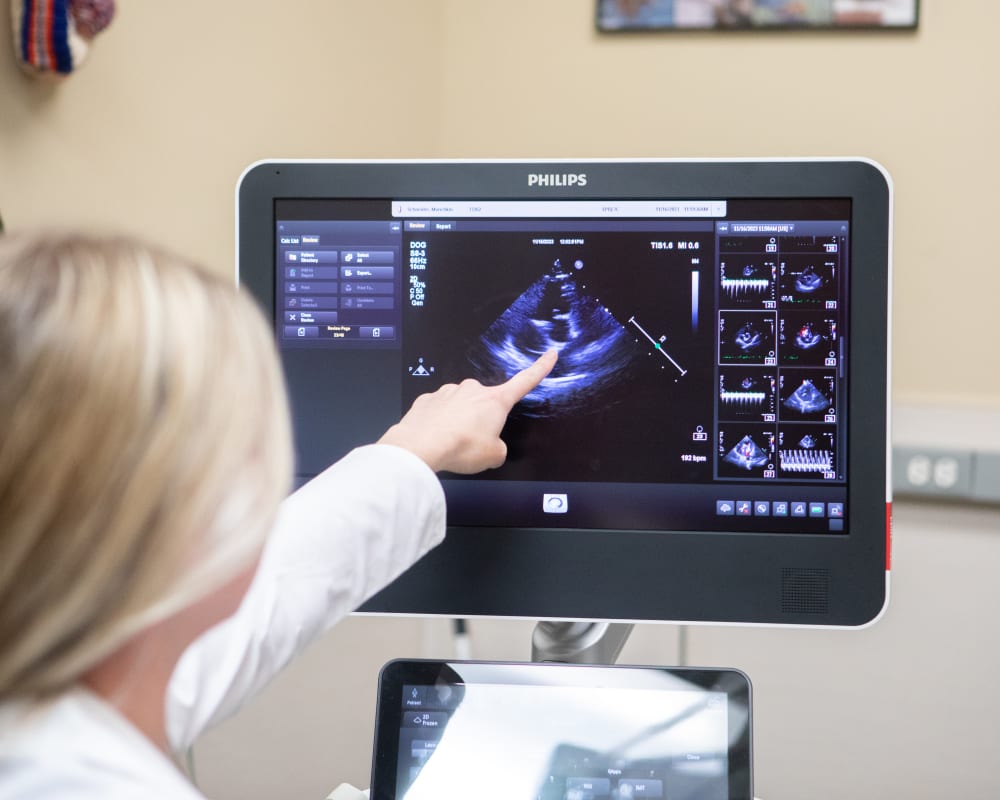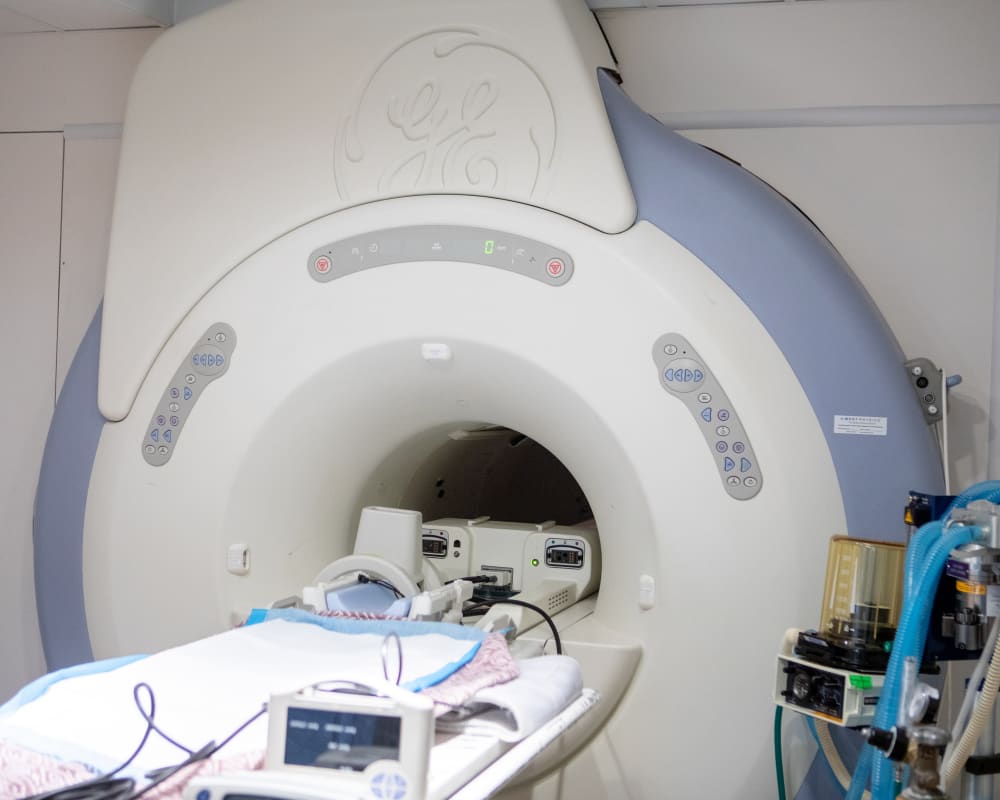Veterinary Diagnostic Laboratory
At our Long Island animal hospital, our veterinarians and board-certified specialists use diagnostic tests and tools in our in-house lab to accurately diagnose your pet's medical conditions and customize treatment plans to your pet's needs.

Pet Laboratory & Diagnostics
Electromagnetic radiation and other technologies are used for diagnostic imaging, allowing us to create highly detailed images of your pet's internal structure.
At our Long Island hospital, we have many advanced tools at our disposal to help accurately diagnose your pet's medical issues. Our services range from digital radiology to full body spiral CT scanning, Stem Cell Therapy, fluoroscope and more.
With our diagnostic imaging capabilities, we can offer more immediate treatment options and share your pet's information in an efficient manner with your primary care veterinarian.
In-House Pet Lab & Pharmacy
In our in-house laboratory, we're able to perform tests and get results quickly so your pet's symptoms can be diagnosed and we can begin treatment as soon as possible. Our pharmacy is always stocked with numerous prescription medications and diets, allowing us quick, easy access to any medications your pet may require while in our care.
Our Diagnostic Services
At our Long Island hospital, we are pleased to offer advanced pet diagnostics to allow our veterinarians to provide an accurate diagnosis of your pet's medical issues.

-
CT Scan (Computed Tomography)
This non-invasive diagnostic scanner allows our specialists to view your pet's internal anatomy by producing extremely detailed, cross-sectional images.
CT scans can be used for planning surgery and diagnosing diseases.
-
Endoscopy
An endoscope is comprised of a small camera and light attached to the end of a flexible tube.
During an endoscopy, a long, thin tube is inserted directly into the body so we can observe internal tissues or organs in detail.
Endoscopes are minimally invasive and can be inserted into the openings of the body, such as the mouth or anus to detect internal trauma, blockages, ulcers, abscesses, and more.
-
Fluoroscopy
Fluoroscopy is a series of continuous, very low-dose x-ray images. These allow our veterinarians to view images of the inside of your pet's body in motion (e.g. to watch the lungs and heart expand).
We use fluoroscopy to diagnose diseases which involve motion, including swallowing or breathing disorders and problems with the intestines and stomach.
-
MRI (Magnetic Resonance Imaging)
Magnetic Resonance Imaging (MRI) uses a powerful magnetic field, a computer and radio waves to create detailed pictures of soft tissues, organs and other internal structures of the body.
Our vets can then examine these images on a computer monitor or print them.
-
Radiography (Digital X-Rays)
With digital x-rays (radiographs), we can examine your pet's internal systems to reveal data that may not be visible from the outside.
Radiograph is a non-invasive, safe, and painless. Because we use only very low doses of radiation and level of radiation exposure required to perform this procedure is very low, even very young pets and pregnant females are able to tolerate it.
We can use radiographs to evaluate organs and bones, and to diagnose conditions including bladder stones, fractured bones, chronic arthritis, some tumors and spinal cord diseases.
-
Ultrasound
Using ultrasound imaging, we expose part of the body to high-frequency sound waves so images of the inside of the body can be produced.
Because ultrasound images are captured in real-time, we're able to see the structure and movement of your pet's internal organs, in addition to blood flowing through blood vessels.
Apply for Financing
With CareCredit and Scratchpay Financing, you can get your pet the veterinary care they need at Atlantic Coast New York Veterinary Specialists.